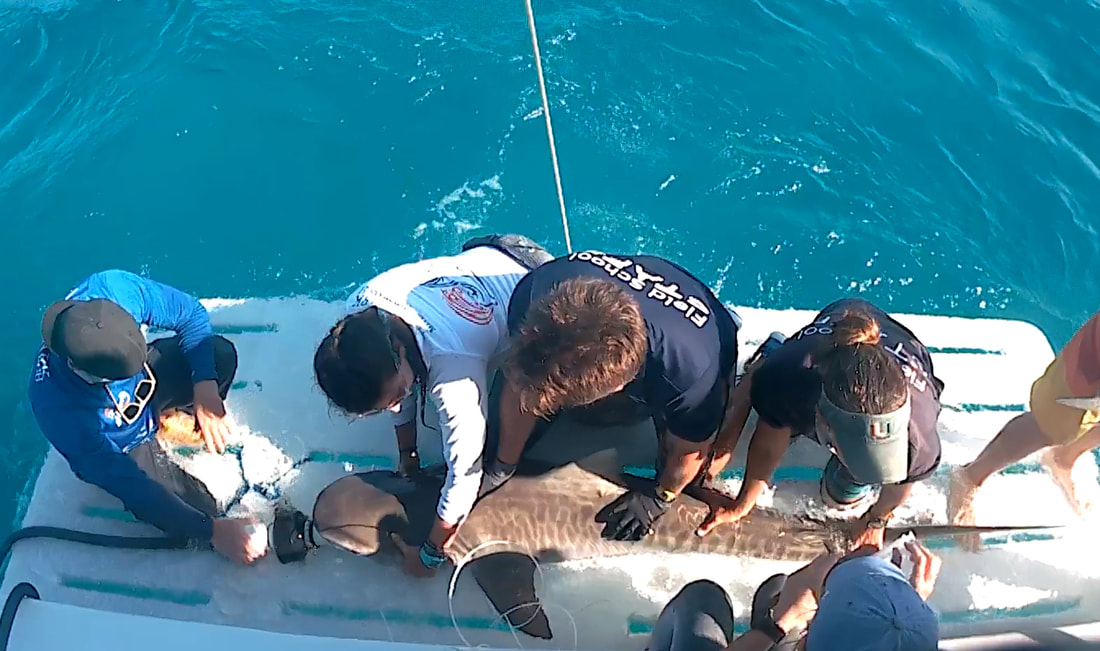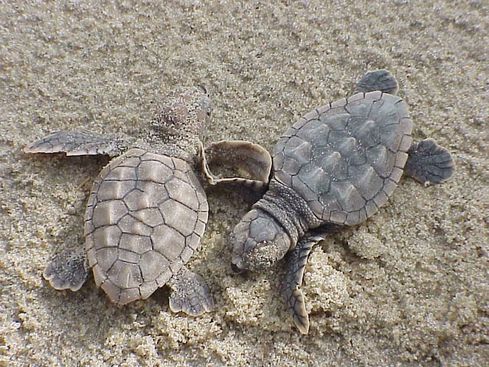|
Despite windy weather, we had an amazing three weeks working on the Florida Keys Shark Ecosystem Project with the University of Miami's Shark Research and Conservation Program! The student participants and the interns and staff from UMSRC were fantastic, and made the most of our data collection opportunities in Dry Tortugas National Park and the Florida Keys National Marine Sanctuary, sampling 78 sharks across more than 10 species. We saw some amazing sharks this week, including this blacktip which was fitted with a satellite tag before release. We can't wait for future work on this project!
0 Comments
Our team is super excited to be spending three weeks in Dry Tortugas National Park partnering with the University of Miami's Shark Research and Conservation Program on their Summer Research Expeditions! UMSRC team members and a group of amazing students are living and working aboard the RV Garvin right now studying the ecology and ecosystem effects of the ocean's top predators in this remote national park. We are at the halfway mark now and the teams have collected data on more than 40 sharks of 9 different species! Here the team works up a tiger shark (Galeocerdo cuvier) before releasing it in excellent condition!
During our recent fieldwork in Dry Tortugas National Park, our staff encountered some Goliath Grouper (Epinephelus itajara) hanging out near Garvin.
Goliath Grouper are the largest grouper species in the Atlantic, growing up to eight feet long and weighing as much as 800 lbs. They occupy relatively small home ranges, and can be territorial, particularly of preferred refuges like wrecks or caves--an irritated Goliath Grouper can contract its swim bladder to create a distinctive rumbling sound. Like many grouper species, Goliath Grouper are what are called "aggregation spawners"--sexually mature individuals gather in large groups (100+ individuals) to reproduce each year. This makes them particularly vulnerable to overfishing during these aggregations, when a large percentage of adult individuals may gather in just a few locations. They used to be so overfished in South Florida that they were considered for listing under the US Endangered Species Act, and harvest of these incredible fish has been prohibited in US Federal waters since 1990. New evidence from a paper by researchers at Florida State University shows that loggerhead sea turtles may face yet another impact from plastic pollution: the incorporation of microplastics into the sand they use to construct their nests. In a survey of the 10 most important loggerhead nesting sites on the Gulf Coast of Florida, microplastics were found at every location. Sea turtles have what's called "temperature-dependent sex determination," which means the sex of hatchlings is determined by the temperature they are incubated at. Basically, at warmer temperatures, more (or all) of the hatchlings are female. Because tiny plastic particles retain heat better than grains of sand, shifts towards beaches with higher concentrations of microplastics are a potentially serious concern for the future health of loggerhead populations. Scientists have known for a long time (see this paper, or this one, or this one) that changes in beach temperature would impact sea turtle sex ratios, but we're just starting to reckon with the realization that the addition of plastics to sand may exacerbate these effects.
Yet another reason to get involved with the work of organizations working to remove trash from the marine environment, like our friends at Debris Free Oceans, and to avoid single-use plastics! |
Field Notes
Archives
July 2021
Categories |
|
Partner with us! We are always looking for new schools, scientists, and non-profit organizations to partner with. Please contact us here to start a conversation.
Hear from us! Sign up for our newsletter to hear about what is happening at Field School as well as upcoming offers and specials. |



 RSS Feed
RSS Feed